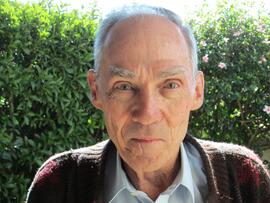Interview with David Phillips 1960
- ZA ZAR STDS 202000760
- Item
- 2012
Interview with David Phillips – 1960
David lived in Hyde Park and started at St David’s in grade 1 in 1948. Hyde Park was very
agricultural in those days and only underwent development from about 1954. He was a day boy
and used to cycle to school on the dirt roads.
David skipped grade 2 but then failed standard 9. He was absolutely devastated to fail but in
retrospect there was good reason for that as there were family problems at the time which he
could not handle.
He recalls Mrs Kempster in standard 4, she was an institution in herself and one didn’t mess
around with her. From then on school became a bit more serious and he remembers the strap
was used in punishment. The brother he remembers as being his favourite was Br.
Bonaventure. He saw Br Anthony at a function at the school about 30 years after he, David had
left and was so impressed that Br Anthony remembered him by name.
If there was any advantage to being a day boy he recalled that the boarders always seemed to
be hungry and were always around when the sandwiches were taken out. He enjoyed being
able to go and talk to the brothers about anything and everything. Coming from a home with an
older father who was 67 when he was born the age gap came into play and he related more to
the brothers especially with matters such as career guidance.
He hated homework with a passion. There was only one negative experience that he could
recall and that was when he was about 13, 14 drinking from one of the water fountains when a
Bulgarian pupil (Thomas Munnick) pushed his head down and he broke his two front teeth with
which he has had problems to this day.
He was an athlete and very much into running and came second in the mile. He has been a
runner ever since until about 2 years ago when his knees started to give him problems. He also
played rugby for the 3rd XV.
He was very happy at school and only cried on the first and last day. The school was a haven to
him, he had no worries and thought that the brothers were really good guys and that had all
come to an end. He then went to Wits to study a BA but ended up studying for an LLB and
became a lawyer specialising in litigation and property. He began his articles in 1964 and retired
in March 2011. When he has the time his hobbies are fishing and hunting and looks forward to
spending quality time with his grandchildren.
He was involved with a class reunion in October 2009. Harry Rosmarin is the one who keeps
them all in touch. He sees Tony McLaughlin who is sadly not interested in the old boys. He is a
member of MOBS and would be willing to participate in any pledges or donations towards the
publication of the history of St David’s.
JE January 2012
Egenrieder, Julie

